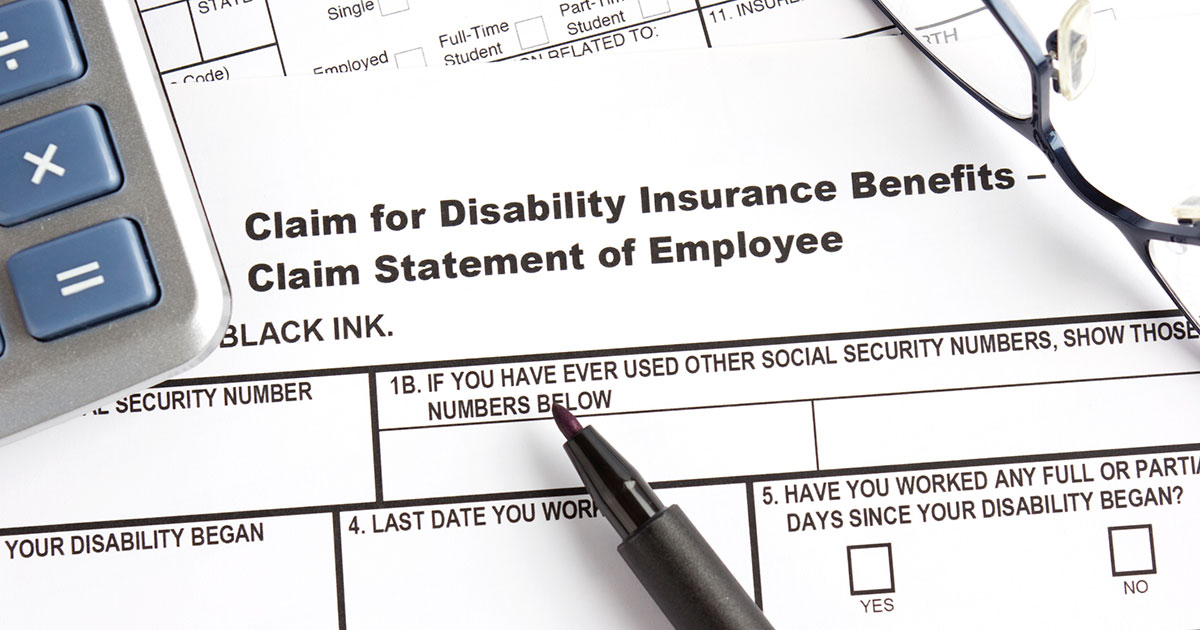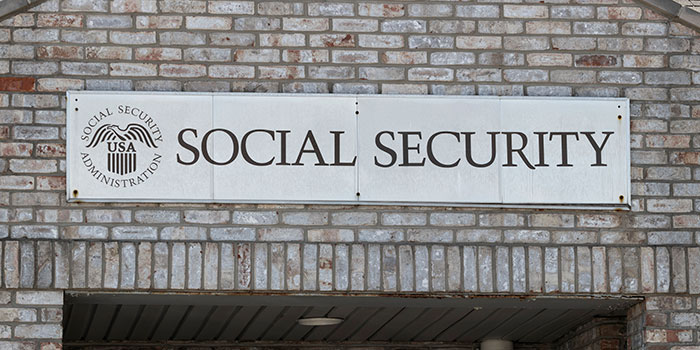
Living with cancer may mean you aren’t able to perform some of the activities you enjoyed in the past, and this may even require taking a break from your job. In certain cases, you may be eligible for government disability benefits, so it’s important to know how to file for those, which disability benefits may be available to you and how much disability programs pay to qualified applicants.
This article will focus on government Social Security Disability Insurance (SSDI) benefits, administered through the Social Security Administration (SSA), specifically for cancer patients. We’ll explain the eligibility criteria, how to file for these benefits, what to expect if you do qualify and how to appeal a negative decision.
Topics include:
- Social Security disability benefits
- Who qualifies for disability benefits?
- What information is necessary to apply for SSDI?
- Employment and work history details
- Finding out if you’re approved
- How much can you expect to receive?
- Expedited review in certain cases
- What happens if you’re denied?
- How City of Hope may help
If you’ve been diagnosed with cancer and are interested in a second opinion about your diagnosis or treatment plan, call us or chat online with a member of our team.

Social Security disability benefits
In the United States, the federal government offers SSDI to those who are “insured,” generally meaning individuals who have worked long enough to have paid Social Security taxes on their earnings, and who are no longer able to work.
The idea of offering such a benefit was debated for many years, beginning in 1930s during the Depression, and ultimately became law in 1956. At that time, benefits were only offered to disabled workers aged 50 to 65 and their children if the recipient died before a child turned 18. The SSDI program has evolved over time to include a broader qualifying age span, but the basic definition of what constitutes a disability remains true to the original: “an impairment of mind or body which continuously renders it impossible for the disabled person to follow any substantial gainful occupation.”
A cancer diagnosis may qualify as a disability, allowing you to apply for and receive SSDI income, and your condition may even warrant an expedited SSDI application.
Who qualifies for disability benefits?
The first step in determining whether you qualify for SSDI is to review the basic eligibility requirements. Here are five basic questions to help you decide whether to apply for SSDI:
- Are you currently working? Ultimately, your work history—annual wages—will determine the amount of your benefits. Learn more about how the SSA determines benefits based on your work history.
- Is your condition severe? The SSA defines “severe” as significant limits over the past year in your ability to lift, stand, walk, sit or remember. Sometimes, it’s not the disease itself that may limit your abilities but side effects from treatments or symptoms like pain.
- Is your condition included on the SSA’s list of medical conditions the government considers “disabling”? Review the cancer listings.This comprehensive list, also called the Blue Book, lays out the medical criteria for determining whether you can receive SSDI. If your diagnosis isn’t on the list, the SSA may review your case to decide whether your condition qualifies.
- Can you do any tasks related to your job? If not, you may qualify for SSA disability benefits.
- Can you do any other type of work? The SSA will consider your age, education and past work experience when determining whether you have skills you can use to work with your condition.
If the answers to the above questions indicate you may be eligible to claim SSDI, the next step is to gather the necessary documentation to apply.
What information is necessary to apply for SSDI?
The SSA has a checklist you can access to make sure you have the necessary documentation before you begin applying for SSDI.
Necessary documents may include:
- A birth certificate, proof of citizenship or lawful alien status
- Social Security number
- Military service documentation with discharge papers if you served before 1968
- A bank account routing number
- Information on your marital status and whether you have any children
- Information on your education background
- Documentation of settlement agreements or workers’ compensation benefits
You’ll also need your medical records, including the dates of examinations and treatments, medical tests and who ordered them, all medications you’ taking, who prescribed it and why.
Make sure to document when your medical condition began to impact your ability to work as well as the types of jobs you’ve had.
Employment and work history details
As part of your application, details are necessary for your current job as well as your work history for up to 15 years before you became unable to work because of your condition.
Your annual SSA statement outlines your wages and Social Security benefits for the years you’ve been working. You also can access this information online at your “my Social Security” account. This account is helpful in applying online for SSDI.

Finding out if you’re approved
Once you’ve reviewed the eligibility requirements, assembled the necessary documentation and created an online my Social Security account, you’re ready to apply. The online application process can take one to two hours, but you don’t need to complete it in one sitting.
The SSA offers a two-minute video, with tips on applying online.
You may also apply by phone or in person at any Social Security office Monday through Friday, 7 a.m. to 7 p.m. Call 800-772-1213 or the TTY number at 800-325-0778 to make an appointment.
Once your application has been filed, the SSA may contact you with questions. If you filed online, you can track your application on your account, or you can call the number above to follow up.
Generally, it takes about three to five months to receive a decision, although that timeline depends on how long it takes to get the necessary medical records and for reviewers to consult with your health care team and determine whether additional medical exams are needed. Decisions will be mailed to you in a formal letter detailing the amount of the SSA disability benefits and when they’ll begin.
How much can you expect to receive?
If approved, the amount you’ll receive in SSDI benefits is based on your lifetime average earnings as recognized by Social Security. You can get an estimate by looking at your Social Security statement on your mySocialSecurity.gov account or by using the online benefits calculator.
You’ll begin to receive your benefits in the sixth month after your disability began. For example, if you applied for disability benefits July 1, 2020, and the SSA determines your disability began on June 15, 2020, you’d receive your first disability benefits payment in December 2020.
Anyone eligible for SSDI is also eligible for Medicare after a 24-month waiting period.
Expedited review in certain cases
Thanks to computer modeling technology, SSDI applications may be automatically flagged for a Quick Disability Determination, the Compassionate Allowance program or presumptive eligibility and may be approved in a matter of days. The Compassionate Allowances list offers an alphabetical listing of conditions that qualify for the program.
If your condition worsens after filing your SSDI application, let the SSA know in case you then become eligible for an expedited review. Keep in mind that only about 4 percent of applicants are eligible for a quicker review process.
Even if you qualify for expedited approval, it requires a five-month waiting period before you receive your benefits, beginning on the date your disability began, not the date of your disability claim application.
What happens if you’re denied?
If your application is denied, you have 60 days to request an appeal, which you may process online through your mySocialSecurity.gov account.
There are four levels of appeal.
A reconsideration involves a new review of your disability application including any additional information you submit.
If you disagree with the decision after reconsideration, you may request a hearing by an administrative law judge.
If you disagree with the administrative law judge’s decision, you may ask for a review by Social Security’s Appeals Council, which may deny your request, issue a new decision or return the case to the administrative law judge.
The last level of appeal is filing a civil action in a federal district court.
Keep in mind that according to the Social Security Administration’s statistics, only 31.8 percent of those who applied for disability benefits ultimately received them in 2021.
Throughout the application and appeal process, you may consider hiring a disability lawyer, who could review your application’s strength and, if your disability claim is denied, guide you through the appeal process.
How City of Hope may help
At City of Hope, each patient is assigned a financial counselor available via phone, email or in person to assist in identifying potential benefits, answer questions and help facilitate the application filing process, whether the patient is applying for SSA disability benefits or other programs.
City of Hope's financial services staff and social workers understand and appreciate the complexities of this process and the added stress it may cause. That’s why a support structure is in place to help cancer patients sort through the paperwork and regulations.
“Emotions run high in every which way just because of the situations patients are dealing with,” says Amy Pierce, Financial Services Manager at City of Hope in Atlanta, who helps assemble the necessary paperwork for new City of Hope patients and connects them with resources to help. “I think it’s just understanding and coping and helping them navigate the situation the best way you can.
“It’s just trying to really be the solution to the problem in any sense,” she adds. “We try to take that extra step to help them get the care they need.”
If you’ve been diagnosed with cancer and are interested in a second opinion about your diagnosis or treatment plan, call us or chat online with a member of our team.



